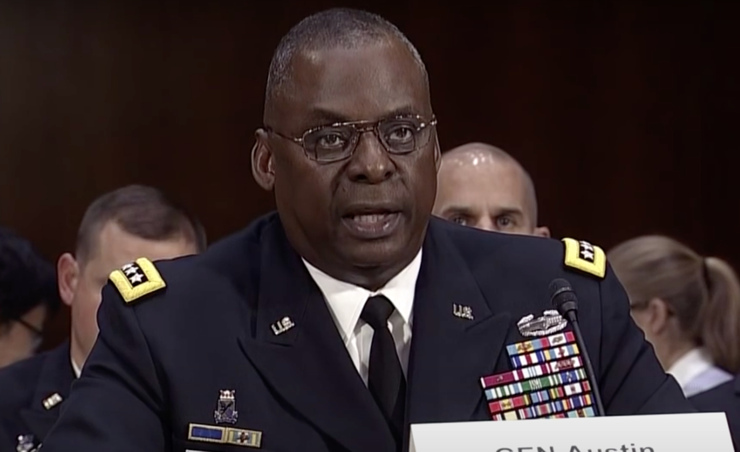The US is tying down China from all sides by swiftly building alliances–India, Vietnam, Taiwan and Japan. With a steady persistence it is cementing alliances to pin down China from all sides for its obduracy over international laws, aggression towards neighbours and indefensible territorial claims.
In Vietnam, US Defence Secretary Lloyd Austin made efforts to strengthen security relations with Vietnam as the two nations with divergent governance systems come close, all the while keeping a watchful eye on Chinese activities in the South China Sea.
Dr Jagannath Panda, Research Fellow and Coordinator of the East Asia Centre at MP-IDSA, New Delhi, told India Narrative that Austin’s visit to Vietnam is a statement from the Biden administration that the US values its partnerships in the Indo-Pacific and that Vietnam figures very highly in this calculus. Panda adds: "Austin’s visit reinforces the Biden administration's outreach in Indo-Pacific where Southeast Asia is the most prominent region in American strategic planning".
The choice of Vietnam as an important ally in the region is important because it is one of the staunchest critics of Beijing in the region. Vietnam has tried to stand up against the regional bully in its own unique ways. It has withstood Chinese bullying and pressure to a large extent, over oil and natural gas in the South China Sea. Vietnam, which shares its northern land border with China, has also raised maritime militias to take on similar Chinese militias in the disputed waters.
The Washington-Hanoi talks happened in the backdrop of an American military vessel sailing through the Taiwan strait, signaling to Taiwan that help is at hand and annoying China over US presence close to its waters.
Over the years, USA and Vietnam have developed military relations with the latter using coast guard cutters and other hardware supplied by Washington. Austin's visit is most likely to strengthen these relations further.
On a widely-held perception which China keeps hammering before global audiences–that the US is dividing countries into blocks–Austin said: "One of our central goals is ensuring that our allies and partners have the freedom and the space to chart their own futures," adding specifically that the US has not asked Vietnam to choose its allies.
Notably, the US is preparing the ground along with its Indo-Pacific allies for the long run against China on many fronts. These include hauling it over the coals for human rights violations, environmental degradation over resources, military threats to neighbours as well as breaking monopolies over supply chains.
Panda says: "Vietnam is critical for the Emerging Supply Chain Networks and the US would like to build a stronger link with Hanoi along with other partners like India, Japan and Australia".
This is Austin's first visit to South-East Asia after assuming charge under US President Joe Biden's command. A day earlier in Singapore, Austin also gave a call to allies in the Indo-Pacific region to be prepared to give shape to a new regional order.
Laying out the strategy for allies in the region, Austin said in Singapore: "We’re aiming to coordinate better, to network tighter and to innovate faster. And we’re working to ensure that our allies and partners have the capabilities, the capacities and the information that they need”.
Explaining Washington's outreach, Panda said: "Secretary of State Antony Blinken’s visit to India and Austin’s visit to Vietnam explains a constructive and complimentary diplomatic practise in the Indo-Pacific".
More on the region
US and China engage in a bitter war of words ahead of Xi-Biden meeting
Has Japan become the fulcrum of resistance to China in the Indo-Pacific?
Biden wants the next Quad summit in-person, why is it important for India?
China bullies Malaysia in quest for oil and gas in South China Sea: US think tank
China’s sand-sucking dredgers target Taiwan with eco-warfare




















